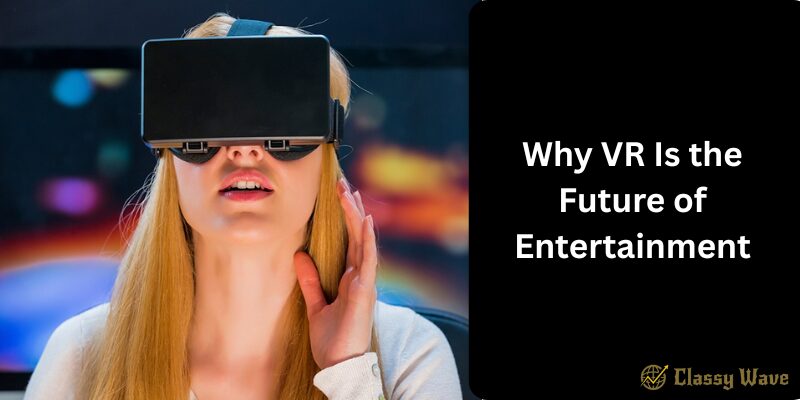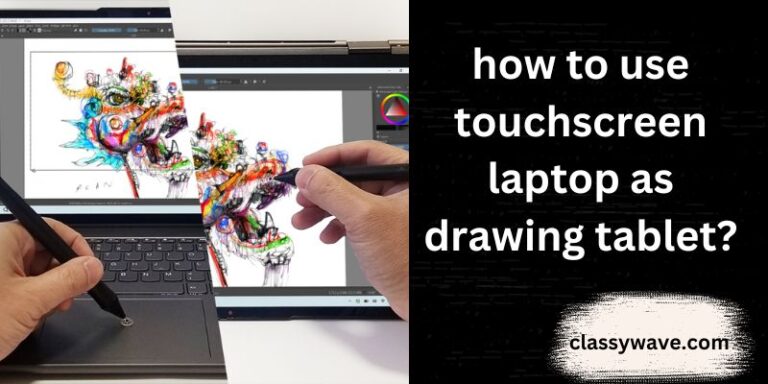Why VR Is the Future of Entertainment | Classy Wave
Virtual Reality (VR) is no longer a concept from science fiction — it’s here, evolving, and completely transforming how we experience entertainment. From immersive gaming and virtual concerts to interactive movies and digital tourism, VR is changing the way we see and feel the world. The future of entertainment is no longer on flat screens; it’s all around us, in full 360°.
What Is Virtual Reality (VR)?
Virtual Reality is a simulated digital environment that allows users to interact with a computer-generated world as if they were physically present. By wearing a VR headset, users can see, hear, and even move within a 3D world — creating a lifelike experience that traditional media can’t match.
The Evolution of Entertainment
For decades, entertainment has moved from theaters to television, and from DVDs to streaming platforms. Now, VR is the next big leap. Just like Netflix changed how we watch movies, VR is changing how we experience them. Instead of simply watching a story unfold, VR lets you be part of it.
Immersive Experiences Like Never Before
VR provides a sense of presence — you don’t just observe; you feel like you’re inside the action. Imagine attending a live concert from your living room, walking with dinosaurs in a prehistoric jungle, or exploring a fantasy world in 3D. That level of immersion makes VR entertainment incredibly personal and unforgettable.
Revolutionizing the Gaming Industry
Gaming is where VR truly shines. Unlike traditional gaming, VR games place you directly inside the world — you can look around, move, and interact with virtual objects naturally. Games like Beat Saber, Half-Life: Alyx, and The Walking Dead: Saints & Sinners have shown how VR takes gameplay to a whole new level of excitement and realism.
Virtual Cinemas and 360° Movies
Imagine sitting inside the movie rather than watching it. VR films and 360° videos let viewers explore scenes from every angle. Filmmakers can now design interactive stories where the audience controls the perspective — creating a completely new kind of storytelling experience.
VR Concerts and Live Events
The entertainment world is already embracing VR for live events. Artists like Travis Scott and Ariana Grande have hosted virtual concerts inside platforms like Fortnite and Oculus Venues, where millions of fans attended from home. It’s a game-changer — no travel, no crowds, just pure immersive energy.
Social VR: Connecting People Digitally
VR isn’t just about solo experiences. Social VR platforms like Meta Horizon Worlds, VRChat, and Rec Room let people meet, talk, and even play games together in virtual spaces. You can hang out with friends, attend parties, or even host business meetings — all without leaving your home.
Virtual Tourism and Exploration
VR allows users to explore destinations worldwide without boarding a plane. You can visit the pyramids of Egypt, dive into coral reefs, or stand on top of Mount Everest — all in vivid 3D. For many, it’s an affordable and accessible way to travel the world.
Enhanced Sports and Training Experiences
Sports entertainment is also embracing VR. Fans can experience live matches from the best seats in the stadium through VR headsets. Meanwhile, athletes use VR for training — practicing strategies, improving reaction time, and simulating real game environments safely.
Educational Entertainment with VR
Learning through entertainment has never been so engaging. Museums and educational platforms now use VR to make history, science, and art come alive. Students can walk through ancient Rome, explore the solar system, or dissect virtual organisms — turning learning into an adventure.
VR and the Metaverse
The rise of the metaverse — a shared virtual world — is closely tied to VR. Entertainment in the metaverse means movies, concerts, games, and shopping experiences that all happen in connected virtual spaces. With tech giants like Meta, Sony, and Apple investing heavily in VR, it’s clear that immersive entertainment is becoming mainstream.
The Power of Personalization
In VR, entertainment is tailored to you. You can choose where to look, what to interact with, and even influence outcomes in stories. This level of personalization keeps audiences engaged and emotionally connected — something traditional media often struggles to achieve.
Challenges VR Still Faces
While VR is incredibly promising, it’s not without challenges. High equipment costs, motion sickness, and limited content still hold it back. However, with advancements in lightweight headsets and better graphics, these barriers are quickly disappearing.
Why VR Is the Future
Virtual Reality is more than just technology — it’s a new dimension of storytelling and experience. It allows creators to build worlds where users are not just spectators but participants. The future of entertainment will be defined by interactivity, immersion, and emotional connection — all of which VR delivers flawlessly.
Conclusion
From gaming and movies to concerts and virtual travel, VR is redefining entertainment as we know it. It bridges the gap between reality and imagination, creating experiences that engage all your senses. As technology advances, VR will become more affordable, accessible, and essential — making it the undisputed future of entertainment.







